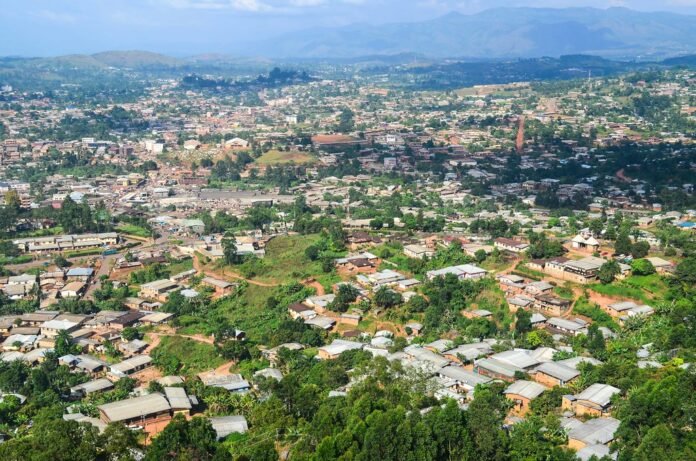Health insurance in Guinea-Bissau is characterized by a stark divide between the public system—primarily the Caisse Nationale d’Assurance Maladie (CNAM)—and limited private coverage options, mostly offered by international providers. While both public and private systems aim to provide access to healthcare, their structures, accessibility, and overall quality differ significantly.
Differences
One of the most striking differences lies in the scope and quality of coverage. Public health insurance under CNAM offers basic coverage for local workers, funded through employer contributions. However, due to frequent funding gaps and systemic inefficiencies, this coverage is often insufficient. Public health centers, which handle around 70% of medical visits, are plagued by medicine shortages, long waiting times, and under-resourced facilities. Emergency care is minimal, and patients frequently resort to out-of-pocket payments—even for insured services.
In contrast, private health insurance in Guinea-Bissau is almost exclusively provided by international firms like Cigna Global, AXA, Allianz Care, April International, and Morgan Price. These companies offer comprehensive packages that include inpatient and outpatient care, dental and vision services, critical illness, and, importantly, emergency evacuation. These plans are primarily tailored to expatriates, wealthier residents, and international travelers, and are structured around high-end service delivery with global hospital access, direct billing, and multilingual support.
Another major difference is cost structure. Public healthcare often entails unofficial or unexpected expenses, despite theoretical insurance coverage. Approximately 44% of people in Guinea-Bissau report avoiding medical care due to cost. In contrast, while private insurance involves higher upfront premiums, it typically ensures more predictable and comprehensive financial protection—particularly in emergencies or when seeking care abroad.
Similarities
Despite the many contrasts, there are a few key similarities between the two systems. Firstly, neither public nor private insurance can guarantee timely, high-quality care within Guinea-Bissau itself. Public facilities are under strain, while private facilities are limited and may still require cash payment even if the patient is privately insured. Both systems thus face challenges in local service delivery, pushing wealthier residents and insured expats to seek care internationally.
Secondly, both public and private health systems in Guinea-Bissau underscore the importance of financial planning for healthcare. Whether it’s contributing to the CNAM fund or investing in private insurance, individuals must account for healthcare costs in a system where universal, accessible, and free healthcare remains out of reach for many.
Top Public Health Insurances in Guinea-Bissau
Guinea-Bissau, a small West African nation, has a developing healthcare system primarily supported by the government and international aid organizations. The country’s public health insurance structure is still in its infancy, with limited institutional coverage and services. As of now, Guinea-Bissau has only one formal public health insurance scheme, and it is targeted mainly at civil servants. The majority of the population relies on out-of-pocket payments, community-based health initiatives, or external aid-supported programs for their healthcare needs.
1. Civil Servants Health Insurance Scheme (CSHIS)
- Cost:
The Civil Servants Health Insurance Scheme is funded through payroll contributions and government subsidies. Civil servants contribute a fixed percentage of their salaries—typically between 2% to 5%, depending on their employment grade. The government covers the remaining costs. - Available Services / Coverage Features:
The CSHIS provides access to basic and essential healthcare services including:
- Outpatient consultations
- Essential medications (mostly generic drugs)
- Preventive services (e.g., vaccinations, antenatal care)
- Hospitalization at selected public hospitals
- Emergency services
- Outpatient consultations
- However, services such as specialized surgeries, advanced diagnostics, and non-communicable disease treatments are not consistently covered due to limitations in infrastructure and funding.
- Open for All or Limited:
This insurance scheme is limited to government employees, including administrative workers, teachers, and healthcare professionals employed by the state. It does not extend to private sector workers, informal sector laborers, or the unemployed, who make up a majority of Guinea-Bissau’s population. - Core Financial Features:
The scheme aims to reduce out-of-pocket healthcare expenses for civil servants. Key financial features include:
- No co-payments for most basic services at public health facilities
- Subsidized prescription medication
- Limited reimbursement options for services received at private clinics when public facilities are unavailable
- Coverage often depends on availability of medicines and services within the public system, which can fluctuate due to supply chain challenges
- No co-payments for most basic services at public health facilities
- Consumer Satisfaction Score:
Reliable national metrics for consumer satisfaction are not consistently available in Guinea-Bissau. However, qualitative assessments from local surveys and international health assessments suggest moderate satisfaction among enrolled civil servants. The main positives include reduced costs and access to primary care, while concerns focus on:
- Inadequate infrastructure
- Medicine stock-outs
- Staff shortages
- Limited geographical access (especially in rural areas)
- Inadequate infrastructure
- Based on these observations, a general consumer satisfaction score of 3 out of 5 can be estimated, acknowledging the scheme’s good intentions but also its significant limitations.
Top Private Health Insurances in Guinea-Bissau
Guinea-Bissau’s private health insurance market is extremely limited due to the country’s underdeveloped healthcare infrastructure, low-income levels, and minimal penetration of formal financial services. As of now, there are no major domestic private health insurance companies operating independently within the country. However, a small number of international insurance providers and regional West African insurers offer limited private health coverage, mostly aimed at expatriates, NGOs, diplomats, and high-income local residents.
Below are the key private health insurance options currently available in Guinea-Bissau:
1. Cigna Global Health Insurance(Official Website: https://www.cignaglobal.com/)
- Cost:
Premiums start from around USD 100 to USD 300 per month, depending on age, health status, and level of coverage selected. - Available Services / Coverage Features:
Offers comprehensive international health insurance, including:
- Inpatient and outpatient care
- Maternity care
- Emergency evacuation and repatriation
- Specialist consultations and diagnostics
- Mental health and wellness services
- Global hospital access, including coverage in neighboring countries with better facilities (e.g., Senegal)
- Inpatient and outpatient care
- Open for All or Limited:
Open to expatriates, international workers, and residents who can afford higher premiums. Not accessible to most locals due to cost. - Core Financial Features:
- Global direct billing network
- Customizable deductible and co-insurance options
- Access to 24/7 telehealth services
- Optional dental and vision add-ons
- Global direct billing network
- Consumer Satisfaction Score:
High among international clients; 4.5 out of 5, based on international reviews and client feedback.
2. Bupa Global Health Insurance(Official Website: https://www.bupaglobal.com/)
- Cost:
Starts from USD 150 to USD 400 per month, with high-tier plans reaching over USD 1,000/month. - Available Services / Coverage Features:
- Worldwide hospital access
- Private room and specialist care
- Cancer care, chronic disease management
- Preventive health check-ups
- International medical evacuation
- Worldwide hospital access
- Open for All or Limited:
Primarily for wealthy residents, expatriates, diplomats, and NGO workers. - Core Financial Features:
- High coverage ceilings (up to USD 2 million/year)
- Flexible cost-sharing options
- No claims bonus and family discounts
- High coverage ceilings (up to USD 2 million/year)
- Consumer Satisfaction Score:
Highly rated for service and responsiveness; 4.6 out of 5, particularly praised for their emergency support services.
3. Allianz Care(Official Website: https://www.allianzcare.com/en.html)
- Cost:
Monthly premiums range between USD 120 to USD 350, depending on coverage, location, and risk profile. - Available Services / Coverage Features:
- Core cover includes inpatient, outpatient, and specialist treatments
- Emergency evacuations
- Maternity and newborn care (on select plans)
- Alternative therapies and mental health services
- Core cover includes inpatient, outpatient, and specialist treatments
- Open for All or Limited:
Open to anyone with the financial means; typically serves expats, international contractors, and NGOs. - Core Financial Features:
- Multi-currency billing
- Digital claims process
- Optional dental, optical, and repatriation cover
- Multi-currency billing
- Consumer Satisfaction Score:
Considered reliable with good global support; generally rated 4.3 out of 5.
READ MORE: Private and public health insurance of Armenia (Make informed choices)


